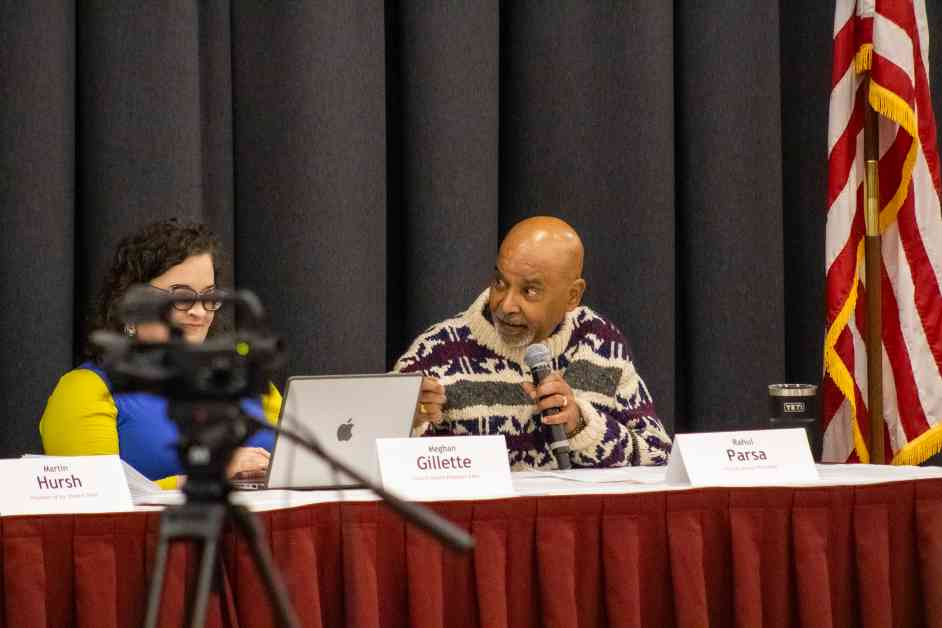Faculty Senate President Rahul Parsa commended and expressed gratitude towards the student government for their collective efforts during the groundbreaking joint meeting held on February 17, 2025, at the Sun Room in the Memorial Union, Ames, Iowa. This historic collaboration marked the first-ever joint meeting between the Student Government and the Faculty Senate, creating a platform for open dialogue and discussion on pressing topics such as AI integration and online learning.
Empowering Student Voices
During the meeting, Faculty Senate President Rahul Parsa emphasized the importance of student input, stating, “We wouldn’t exist without [students]. We want to know what you want or what’s good for you, what you like, what you don’t. So this is a great opportunity.” This sentiment resonated with the senators who shared their diverse experiences with hybrid learning, school closures, and the challenges posed by online-only classes at Iowa State.
One student, Kevin O’Connor, a junior in chemical engineering, highlighted the need for flexibility in academic standards during extreme weather conditions, suggesting that classes move online on days with temperatures below zero to ensure student safety and comfort. These insights shed light on the practical implications of online learning and the evolving landscape of education in response to external factors.
Adapting to Online Learning Challenges
Students also expressed their perspectives on the social dynamics of online learning, emphasizing the difficulty of building relationships with peers and professors in a virtual setting. Ella Aiono-Dimoff, a junior in political science, shared her experience of navigating online courses, pointing out the barriers to interactions and support typically available in traditional classroom settings. This human element underscored the importance of fostering meaningful connections in educational environments to enhance the overall learning experience.
Faculty members contributed valuable insights on the suitability of different course formats for online delivery, drawing attention to the unique challenges faced by language and cultural studies. Tonglu Li, a professor of Chinese, highlighted the essential role of face-to-face communication in language learning, emphasizing the limitations of virtual platforms in facilitating authentic interactions. These reflections underscored the nuanced considerations involved in transitioning courses to online or hybrid formats and the need for tailored approaches to different disciplines.
Exploring Educational Innovations
The discussion extended to innovative educational practices such as microcredentials and the integration of AI technologies in classrooms. Sen. Jennifer Schieltz, the Faculty Senate chair of academic affairs, elaborated on the concept of microcredentials as a means of showcasing specialized skills to potential employers. This emerging trend in higher education aims to provide learners with targeted skill development opportunities that complement traditional degree programs, enhancing their competitive edge in the workforce.
Furthermore, the potential of AI as a valuable educational tool was explored, with students and faculty discussing its role in enhancing research processes, information retrieval, and content summarization. Alexandra Momaney, a senior in global resource systems, highlighted the practical benefits of AI in streamlining research tasks and improving efficiency in academic pursuits. This conversation underscored the transformative impact of technology on the learning experience and the opportunities it presents for collaboration between students and faculty.
In conclusion, the joint meeting between the Student Government and the Faculty Senate heralded a new era of collaboration and dialogue within the academic community at Iowa State University. As Vice President Quinn Margrett conducted the roll call to commence the session, the shared commitment to student empowerment and educational excellence resonated throughout the gathering. With future meetings scheduled for both governing bodies, the momentum of this historic collaboration is poised to drive meaningful change and innovation in the realm of higher education.









